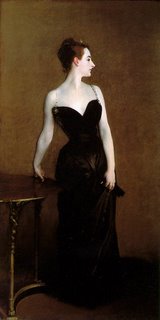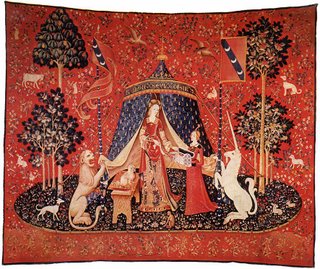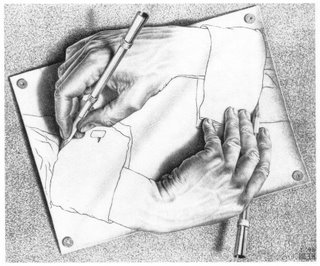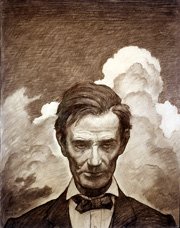Charming, involving, but peculiar. I was a bit surprised by what this turned out to be. When it was mentioned in Gilead, it sounded like it might be about two men, one older, vying for the love of a young woman. That premise would have had some bearing on the love relationship and the conflict in Gilead if it were entirely the case. But, really, The Trail of the Lonesome Pine is a twist on the Pygmalion story, with the Eliza Doolittle character symbolizing Kentucky’s pre-industrial wilderness paradise. The age difference between the principal characters is completely different from that in Gilead: it’s slightly disturbing that Jack Hale falls in love with June at her young age. On the other hand, it strikes me as something you’d get away with in 1908, as well as with the usual anachronisms, such as the old-fashioned terms and turns of phrase and the unenlightened attitudes about class and race.
It’s quirky because it’s from 1908, but the author’s also quirky. The pacing is very uneven -- you can tell that Fox wove a fictional narrative around scenes he actually witnessed among mountain people -- he dwells on some moments with a vividness that is out of all proportion to their importance in the story while paying bare lip-service to moments that should be dramatic in the alleged story. He also has an odd way with a phrase every once in a while: he’ll write a sentence backward: “The longest of her life was that day to June,” or he’ll open a chapter in a funny, detached way: “Spring was coming: and, meanwhile, that late autumn and short winter, things went merrily on at the gap in some ways, and in some ways -- not,” or he’ll describe something bizarrely: “The Hoosier was delirious over his troubles and straightway closed his plant.” He shifts point of view frequently and without warning.
Still, I liked it a lot; I even ordered a fairy stone from www.highhopes.com.
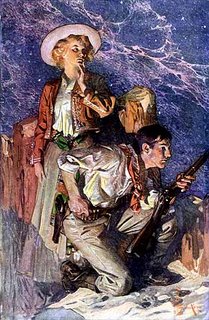 -- J.C. Leyendecker, The Watchers of the Plains
-- J.C. Leyendecker, The Watchers of the Plains
